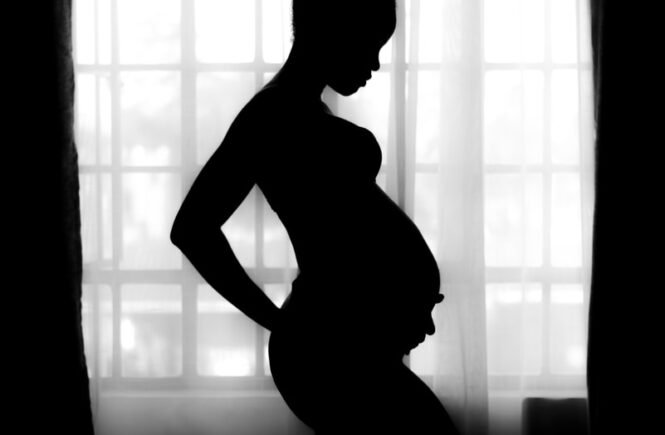My church was covering the Beatitudes for a few months; each week, they would highlight one line from each beatitude. In the week leading up to the verse, “Blessed are the merciful, for they shall receive mercy,” I was faced with a situation where I did not show mercy.
In the weeks prior, someone close to me had done something that was very hurtful, that tried to break a line of trust between us, and I felt betrayed. However, in that moment, I showed this person mercy. I said, “I love you and I forgive you. I want things to get better. Let’s move forward.” In that moment, I forgave this person, and I moved on without bitterness.
But then, a few weeks later, it happened again. My merciful state flew out the window, no forgiving—just escaping to run away and be angry.
What was so different about this time around? If it was the same situation, shouldn’t I have been able to show the same mercy?
Looking first at the word mercy, the Bible has many answers:
Mercy is not a feeling, but a choice you must make. Luke 6:36 says, “Be merciful, just as your Father also is merciful.” It does not say, “be merciful when you feel like it or when you are justified.” Mercy is an ongoing state or disposition–a choice, not a feeling. It is the first word God ever uses to describe Himself in Exodus 34:6. God is mercy.
Jesus showed us the most selfless act, the most merciful act of all—dying for us so that no matter how often we may sin against Him or against others or others may sin against us, He shows mercy on us and will continue to show mercy every day. Knowing all our acts that would be placed against Him, knowing we would not return the favor—He is our greatest example. He does not keep a list of all our past sins, nor does He use them against us or hold a grudge. In fact, Jesus Himself was tempted by sin as we learn in Hebrews 4:15-16:
For we do not have a high priest who is unable to sympathize with our weaknesses, but One who has been tested in every way as we are, yet without sin. Therefore let us approach the throne of grace with boldness, so that we may receive mercy and find grace to help us at the proper time.
We are also commanded to forgive, “Just as the Lord has forgiven you, so you must also forgive” (Colossians 3:13). Where mercy is a choice, forgiveness is mercy in action and something we must do.
Most of all, forgiveness is about Jesus: “And be kind and compassionate to one another, forgiving one another, just as God also forgave you in Christ” (Ephesians 4:32). It is a gift freely given to us that we can give to others.
Forgiveness and mercy do not start with the other person because people will hurt you no matter how fully you forgive them. Oftentimes, we expect something in return for acts placed against us.
(“I will not speak with them again until I get an apology.” “Well, he did it to me so, I can do it to him!” “Nothing has changed so I don’t see why I need to speak with her.”)
In my case, because I showed mercy the first time, I expected the other person’s behavior to change. I felt so betrayed the second time because I expected my merciful act the first time to be enough. But that is not always the case, and I fell short.
Bitterness grew in my heart. I chose not to forgive, avoiding that person, not wanting to speak to that person—all qualities of a person that I do not want to be. At the time, I was ashamed of how I was acting.
But had I not sinned, had I not turned to anger and resentment the second time around, I would not have learned from this sin. Not being able to forgive is like being trapped inside oneself, and no one else is to blame for that but ourselves. We cannot expect actions from others, we cannot change others, but we can change ourselves. We can hope that the change in ourselves is a reflection on God’s mercy, and that others see that too.
One night, God changed my heart. I sat down and chose to forgive this person. I chose to pray for forgiveness, without the expectation that this would not happen again but with the hope that if it did, I would show mercy as Jesus has shown us because He continuously shows mercy. From there on, my heart slowly changed and my actions slowly changed. I was able let go of the bitterness that was holding me back from showing mercy.
It can be hard to move forward. It may take a long time for the hurt to fade. But we can choose to forgive, we can choose to show mercy outright, and we can choose to never forget the day that we chose to forgive. That choice is freeing.
“For You, Lord, are kind and ready to forgive, rich in faithful love to all who call on You.” (Psalm 86:5)
Dear Heavenly Father,
Thank you, thank you for showing me mercy and forgiving my sins every day. Thank you for showing mercy on my past sins and not using them against me. Thank you for sending the greatest example of mercy to this earth, Jesus, to show us how to forgive and to forgive well. Today, I am choosing to forgive _________. Help me move forward in my forgiveness and mercy with _________, because you ask me to, and help my heart grow in mercy and forgiveness and in my love for You and those around me.
In your name I pray, Amen.





